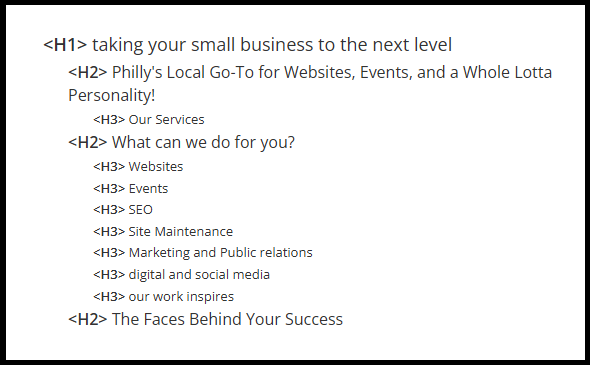If you’re a small business owner having a mild panic attack when someone mentions “search engine optimization” don’t worry – Ctrl Alt Lab to the rescue. SEO can seem intimidating, but luckily, you don’t need a tech degree or a full marketing agency to start showing up on Google.
At first glance, SEO feels a lot like blockchain: confusing, slightly mysterious, and surrounded by people who speak in jargon. The difference is we can actually explain SEO.
Small changes can make a big difference, especially when most of your competitors are still figuring out this stuff too. Let’s start explaining the simple SEO tweaks you can make yourself to boost your visibility, attract more of the right people, and make your website pull its weight.
Why SEO Still Matters in 2025
You might be wondering, does SEO still matter in a world of ChatGPT, social media, and paid ads? Short answer: yes. Longer answer: still yes, and here’s why.
The long game of organic traffic
Paid ads disappear the second you stop paying. But SEO? A well-optimized page can keep bringing in traffic for months – or even years – without you doing anything after the initial work.
SEO vs paid ads: what’s more sustainable?
Ads are like caffeine. SEO is sleep. Both have their place, but one keeps you going for the long haul (and costs a lot less over time). Bonus: people trust organic results more than ads, which means higher-quality clicks. There are even YouTubers making passive income off of videos they uploaded years ago. The content keeps working for them long after it’s posted. Let’s make your website do the same with the right SEO strategy.
Quick Website SEO Fixes You Can Do Yourself
Here’s the good news: you don’t need expensive tools or a full website overhaul to start seeing improvement. These simple fixes can help more people find you—and stick around once they do.
Fix your page titles
Your page title is what shows up in search results and browser tabs. If yours says “Home” or “Welcome,” it’s time for an update.
Instead of: “Home”
Try: “Websites for Small Businesses | Ctrl Alt Lab”
Tell Google what to do and where to do it.
Write meta descriptions that make people click
This is the little snippet under your page title in search results. Don’t let Google auto-fill it—write your own.
Example:
“Custom websites for small businesses that want to stand out. We build fast, mobile-friendly sites that help you grow.”
Think of it as your one-line pitch to a stranger who’s deciding whether to click or scroll past.
Use alt text that actually describes your images
Alt text helps with accessibility and SEO. Google can’t see images – but it can read descriptions. So instead of:
alt=”image1″
Try:
alt=”new storefront for Philadelphia plant shop”
Be specific and helpful. That’s the game!
Speed up your site - no coding required
Slow websites are one of the fastest ways to lose visitors (and Google rankings). If it takes more than 3 seconds to load, people will leave your site.
Quick fixes:
- Compress large images (TinyPNG is your new BFF)
- Remove unused plugins
- Use reliable hosting (cheap hosting = slow site)
In 2025, your website shouldn’t feel like dial-up. Clean it up and it’ll work better for everyone.
Make Your Content Work Harder
You’ve probably already written some solid content. Great! Now let’s make it easier for people—and search engines—to understand and navigate it.
Use headings correctly
Think of your headings like a table of contents:
- H1: Main topic (used once per page)
- H2: Section titles
- H3: Sub-points under each section

Use keywords naturally
Yes, the keywords you choose matter. But cramming them into awkward, robotic sentences won’t work. For example, Ctrl Alt Lab won’t be using “best Philly website SEO small business” into one sentence.
“Best Philly website SEO small business Ctrl Alt Lab.”
Write for humans first and search engines second. If your audience can understand you, Google usually can too.
Link to your own content
Internal linking (linking from one page of your site to another) helps users stick around and helps Google crawl your site more effectively.
If someone’s reading a blog post about SEO tips, link them to your SEO services page. It’s not pushy – it’s helpful.
Local SEO Tweaks That Make a Big Impact
If you serve a specific area, then local SEO is a must.
Claim your Google Business Profile
It’s free, it’s fast, and it’s powerful. Add your hours, services, contact info, and photos. Ask happy clients for reviews. This alone can help you show up when someone searches “bookstore near me.”
Mention your location on your site
Don’t assume Google knows where you are. Include your city and service area on your homepage, contact page, and service descriptions. Help people and search engines figure it out.
Collect reviews (and respond to them)
Reviews build trust and boost your local rankings. Ask for them and thank people after they leave them.

When to DIY vs When to Call in Help
You’ve got this, if…
- You’re writing blog posts and regularly updating your site
- You’re comfortable making small changes or edits
- You want to dip your toes in before going full pro
Call Call Ctrl Alt Lab if …
- You’ve made changes and still aren’t ranking
- Your site is outdated or hard to navigate
- You don’t have time because you’re too busy running your business
You Don’t Need to Be an Expert - Just Consistent
SEO doesn’t have to be mysterious. With a little consistency and a few smart tweaks, your site can go from being invisible to working for you – 24/7.
And hey, if you want someone to just do it so you can focus on running your business, that’s what we’re here for.